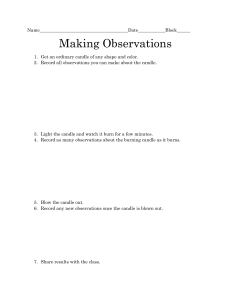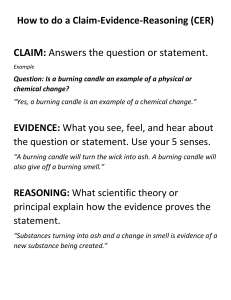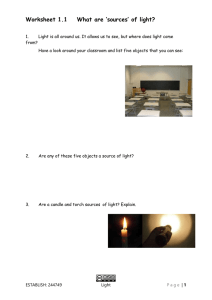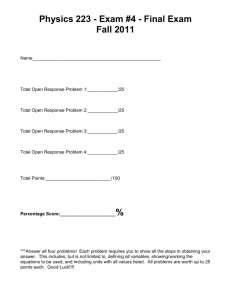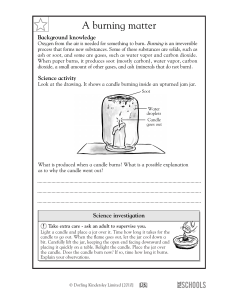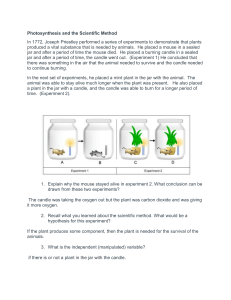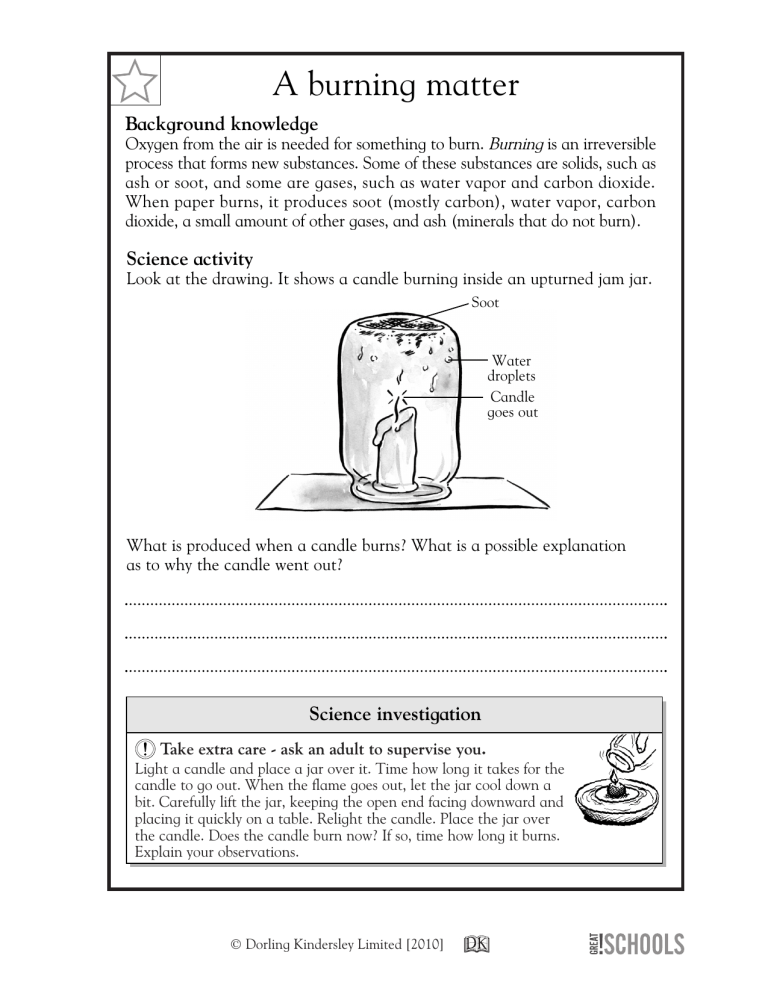
✩ A burning matter Background knowledge Oxygen from the air is needed for something to burn. Burning is an irreversible process that forms new substances. Some of these substances are solids, such as ash or soot, and some are gases, such as water vapor and carbon dioxide. When paper burns, it produces soot (mostly carbon), water vapor, carbon dioxide, a small amount of other gases, and ash (minerals that do not burn). Science activity Look at the drawing. It shows a candle burning inside an upturned jam jar. Soot Water droplets Candle goes out What is produced when a candle burns? What is a possible explanation as to why the candle went out? Science investigation Take extra care - ask an adult to supervise you. Light a candle and place a jar over it. Time how long it takes for the candle to go out. When the flame goes out, let the jar cool down a bit. Carefully lift the jar, keeping the open end facing downward and placing it quickly on a table. Relight the candle. Place the jar over the candle. Does the candle burn now? If so, time how long it burns. Explain your observations. 56 © Dorling Kindersley Limited [2010] 56 ✩ A burning matter Background knowledge Oxygen from the air is needed for something to burn. Burning is an irreversible process that forms new substances. Some of these substances are solids, such as ash or soot, and some are gases, such as water vapor and carbon dioxide. When paper burns, it produces soot (mostly carbon), water vapor, carbon dioxide, a small amount of other gases, and ash (minerals that do not burn). Science activity Look at the drawing. It shows a candle burning inside an upturned jam jar. Soot Water droplets Candle goes out What is produced when a candle burns? What is a possible explanation as to why the candle went out? When a candle burns, water vapor, ash, and carbon dioxide are produced. The water is seen when it condenses on the sides of the bottle. The candle went out because there was not enough oxygen to support its burning. Science investigation The investigator will learn that the candle will still burn in the second scenario, but not for as long as before, since the amount of oxygen in the jar continues decreasing while the carbon dioxide builds up. The investigator will learn that the candle will still © Dorling Kindersley Limited [2010]for as long as burn in the second scenario, but not before, since the amount of oxygen in the jar continues 5
